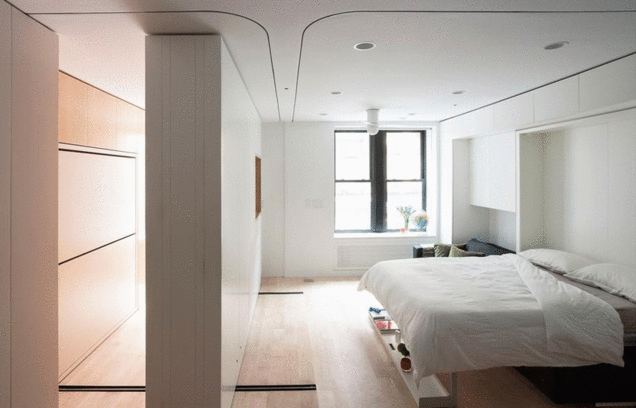The Airbnb Safe Harbor

A less charitable way to view Airbnb’s forthcoming app that will allow neighbors of noisy, inconsiderate, or generally terrible hosts to report them directly to the company is that it will funnel complaints away from the authorities — like, say, in New York City, where the city government just budgeted $10 million to crack down on illegal hotels — and keep them in the Airbnb family.
Airbnb clearly views (loudly proclaimed) self-policing as part of the path toward greater legitimacy. In New York City, where up to half of its listings are illegal, the grand prize of legitimacy is widespread legalization, whether through good old-fashioned lobbying or a quasi-populist, pro-Airbnb uprising — which worked well enough for Uber. (It is generally illegal to rent out an apartment in a building with more than two apartments for fewer than thirty days if the occupant is not present, unless it is properly licensed. The majority of Airbnb listings in New York are whole-home listings, mostly in such multiple-dwelling buildings; ergo, a sizable portion of Airbnb listings in New York City, even the ones that Airbnb wants to promote as the core of its service — run by regular people who “depend on home sharing as an economic lifeline” — are illegal. One might note, then, that there is a discrepancy between what Airbnb views as bad listings — hosts who run multiple properties and provide a “low-quality” experience or are super disruptive to the neighbors — and what is actually illegal in New York.)
But Airbnb has so far provided little reason to believe in its commitment to transparency, especially regarding its own self-regulation: In November, when it published “anonymized information about every active Airbnb listing in New York City as of November 17, 2015,” which it claimed “underscore[d] that home sharing supports families in all five boroughs and makes clear that illegal hotels are not welcome on Airbnb,” it not only deliberately obfuscated much of the data, the company intentionally made it difficult to access and to analyze. Worse, last month, after denying that it had scrubbed its listings prior to releasing the data, it finally admitted that it had done so, clearing out “approximately 1,500 listings that appeared to be engaged in unwelcome commercial activity” — but only after being called out by writer Tom Slee and Inside Airbnb founder Murray Cox.
Even if Airbnb continues to remove what it deems to be “bad actors” with listings that violate its own ill-defined standards, what a reporting app effectively heralds is the company asking for the equivalent a safe harbor provision by implicitly shifting the burden of compliance to the people making complaints: That is, allowing Airbnb to continue to operate with minimal preventive measures against illegal listings or disruptive hosts, and wherever there are no complaints, much like video streaming sites like YouTube operated in their early years under the DMCA. This may seem like a fairly radical interpretation of an app for spying on your neighbor who is an Airbnb host — which is how Airbnb campaigned against proposed regulations in San Francisco a few months ago, hmmm — but Airbnb’s ideas about private property and tenancy and the regulation of it are… kind of radical?
Anyway, I’m sure that the experience of reporting your neighbor to an authority figure has never been more exquisite that whatever Airbnb’s design team has dreamed up!
